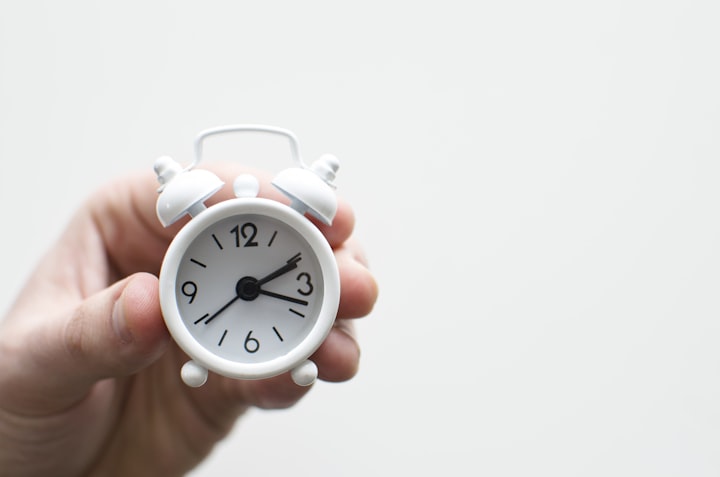The Emotional Impact of Daylight Saving Time:
How Losing or Gaining an Hour Affects Our Lives and Well-being".

Daylight Saving Time (DST) is a practice that many of us are familiar with. Twice a year, we adjust our clocks forward in the spring and backward in the fall, losing or gaining an hour of sleep in the process. While it may seem like a minor disruption, the emotional impact of Daylight Saving Time can be significant, affecting our lives and well-being in various ways.
Losing an hour of sleep when we "spring forward" in the spring can have immediate and lasting effects on our emotional well-being. The abrupt shift in our sleep schedule can lead to sleep deprivation, which is known to impact our mood. Sleep is crucial for regulating emotions, and when we don't get enough of it, we may experience increased irritability, anxiety, and even depression. This change in sleep patterns can disrupt our circadian rhythms, leaving us feeling groggy and disoriented. It takes time for our bodies to adjust to this new schedule, and during that period, our emotional state can be significantly affected.
Additionally, losing an hour of daylight in the evening can have a negative impact on our overall well-being. Sunlight has been shown to boost mood and reduce symptoms of depression. When we "spring forward" and shift an hour of daylight to the morning, we may find ourselves spending more time in the dark during our waking hours. This reduction in daylight exposure can contribute to feelings of lethargy and even Seasonal Affective Disorder (SAD) for some individuals.
Conversely, gaining an hour of sleep when we "fall back" in the fall can initially be seen as a positive change. However, this extra hour of sleep can disrupt our sleep patterns, just like the spring transition. While it may seem like a bonus, it can lead to overindulgence in sleep, which can leave us feeling sluggish and unmotivated. The added hour of darkness in the evening may also result in less outdoor activity and reduced exposure to natural light, further impacting our emotional well-being.
The emotional impact of Daylight Saving Time isn't limited to the immediate changes in sleep patterns and daylight exposure. It also affects our daily routines, which can be a significant source of stress and anxiety. When we change our clocks, we must adapt our schedules to accommodate the shift in time. This adjustment can be particularly challenging for individuals with strict work or school schedules, as well as parents of young children. The disruption to routines can lead to feelings of chaos and disorganization, which can increase stress levels and emotional strain.
Another emotional aspect to consider is the anticipation of Daylight Saving Time changes. As the transition date approaches, many people experience anxiety about the impending shift. They worry about how it will affect their sleep, daily routines, and overall well-being. This anticipatory anxiety can be emotionally draining and disrupt our peace of mind in the days leading up to the change.
The emotional impact of Daylight Saving Time extends beyond the individual level. It can affect our relationships and social interactions as well. When we're sleep-deprived or adjusting to new schedules, we may be more irritable and less patient with others. This can strain personal and professional relationships, leading to conflicts and misunderstandings. In extreme cases, the emotional toll of Daylight Saving Time can even lead to workplace accidents and decreased productivity.
In conclusion, Daylight Saving Time may seem like a small adjustment, but its emotional impact is significant. Whether we're losing or gaining an hour of sleep, our emotional well-being is at stake. The disruption in sleep patterns, changes in daylight exposure, and the stress of adapting to a new schedule can lead to irritability, anxiety, and even depression. It's essential to be mindful of these emotional effects and take steps to mitigate their impact. This might include gradually adjusting your schedule in the days leading up to the time change, seeking exposure to natural light, and practicing good sleep hygiene. By understanding the emotional impact of Daylight Saving Time and taking proactive measures, we can better manage its effects on our lives and well-being.
About the Creator
Reader insights
Nice work
Very well written. Keep up the good work!
Top insight
Heartfelt and relatable
The story invoked strong personal emotions





Comments
There are no comments for this story
Be the first to respond and start the conversation.